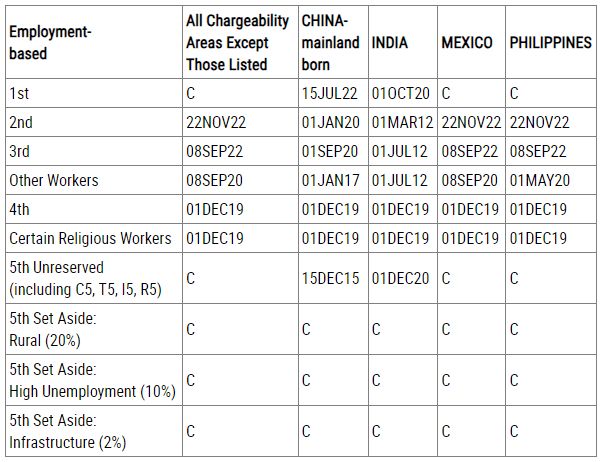The March 2024 Visa Bulletin has been released by the U.S. Department of State and shows little movement from last month.
Quick Hits
- The EB-1 final action dates will advance by two weeks for China, to July 15, 2022, and by one month for India, to October 1, 2020.
- The EB-2 final action dates will remain unchanged for China (January 1, 2020) and India (March 1, 2012). The EB-2 final action date will advance by one week for all other countries, to November 22, 2022.
- The EB-3 Professional/Skilled Worker final action date will remain unchanged for China (September 1, 2020) and India (July 1, 2012). It will advance by one week for all other countries, to September 8, 2022.
U.S. Citizenship and Immigration Services (USCIS) has confirmed that it will accept employment-based adjustment of status applications based on the Final Action Dates chart in the March 2024 Visa Bulletin.
The Final Action Dates chart for employment-based categories is shown below.

Source: U.S. Department of State, March 2024 Visa Bulletin
Key Takeaways
Consistent with USCIS's Employment-Based Adjustment of Status FAQs, which notes that "it is not reasonable to advance the dates in the Visa Bulletin" to accept substantial additional filings in fiscal year (FY) 2024, the March 2024 Visa Bulletin continues the trend thus far in FY 2024 of showing little to no movement across most employment-based categories.
The content of this article is intended to provide a general guide to the subject matter. Specialist advice should be sought about your specific circumstances.


